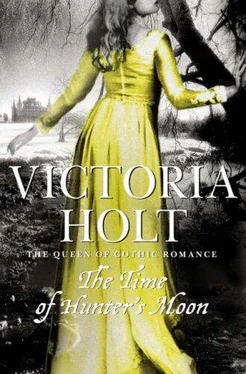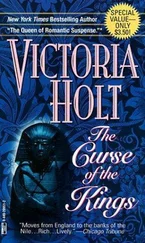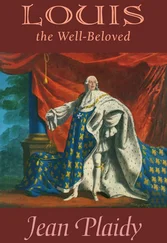"I am no longer Mademoiselle Delorme but Madame de la Creseuse. Yes. I married Henri. Life is wonderful. We are coming to London. We have been lent a house for two weeks by friends of Henri. So we shall be in your capital from the third of next month. It would be wonderful to see you. Write to me there. I will give you the address. I look forward to hearing your news. Do come.
Always your loving and faithful friend. Monique."
I told Daisy that I had received an invitation from some friends with whom we had stayed in the summer.
"Their home is in London, but we were with them in the country for a week. I could go in mid term. It is only for five days, including the week-end. I thought I might take advantage of it."
Daisy was thoughtful. "Few of the girls will go home. Of course there are no lessons. I don't think any of the other mistresses plan to go away. Yes, I do think you might manage it."
"Teresa is invited too."
"Oh, that will be nice for her."
"Then it is quite all right for me to make my plans?"
"Yes. I think so. Go ahead."
So I did. John wrote back that he was delighted. Teresa was wild with joy. I also wrote to Monique at the address she had enclosed in her letter and said that I would call on her when she was in London.
John was at Paddington station and in a short Lime we were trotting along in a cab to his home in Kensington. It was a tall house in a square and guarded by two ferocious-looking stone lions; the white steps leading to a heavy oak door were gleaming and the brass shone like gold.
When he opened the door with his key, a tall young man was hovering in the hall.
"This is Charles," said John. "He's longing to meet you. He's heard all about your stay at the farm."
It was the same open face and good looks. I liked Charles at once.
The maid appeared.
"Oh yes, Sarah," said John. "They'll want to go to their rooms. Teresa, you are next to Cordelia."
We mounted a staircase richly carpeted in a warm scarlet and came to a landing. The maid opened a door and I was in a bright bedroom with a four-poster bed, not a bit like the ones they had at the Hall, heavily curtained in velvet. This one had lace curtains draped at either end and caught into bows of pale mauve satin ribbon. It had brass knobs and rails and seemed to glow with freshness. There was some light and elegant furniture which suggested eighteenth-century France. It was charming. I went to the window and looked out on a small paved garden in which were pots of greenery which must glow with colour in the spring and summer. Chrysanthemums and Michaelmas daisies were still in flower against a grey brick wall.
Teresa came in. She looked radiant. She had a lovely little room and there was a communicating door between it and mine. I went in and had a look. It had obviously been a dressing room.
"Isn't it wonderful?" she cried.
She was so happy. Not only to get away from school but because we were here with John. She was a girl who fixed her affections firmly when she found an object of admiration. She had turned to me in desperation and from our association had come all the people she cared for most. Myself. Aunt Patty. Violet. And now she had added John to that band. It was overwhelming for her who had had no one and then suddenly so many.
I feared she was a little dramatic. I should never forget how she had flung Marcia Martindale's earring into the ponds. She was so young and had little control over her emotions and, being inexperienced, saw everyone as very good or very bad. There were devils and angels ... and nothing in between. She would have to learn, but for the next few days she would be with those whom she loved and admired and was happy.
Dinner that night was exciting. There was a gracious dining room with long windows onto the street. As we ate we heard the clop clop of passing horse-drawn carriages and occasionally the sound of a newsboy selling late night papers.
We talked of the week in the country, of school, of London and what we should do during our stay.
"There is so much to show you," said John. "Now what shall it be first?"
"I have an appointment with an old school friend," I said. "She has invited me to call. That is for the day after tomorrow."
"Well then, what's for tomorrow. Teresa, have you any idea? The zoo is amusing."
"I like animals," cried Teresa.
"Ail right then. Tomorrow morning, zoo. How would you like to ride in the Row, Teresa?"
Teresa was slightly less enthusiastic. She had never fully recovered from her fall, although I had persuaded her to ride again. "Yes," she said hesitantly.
So it was agreed.
We had a wonderful morning. It was not only Teresa who was delighted by the animals. We watched the seals fed; we marvelled at the lions and tigers; and we laughed at the antics of the monkeys. We sipped lemonade on the terraces and I thought how happy I was. I did not want the visit to end.
Dinner was a hilarious affair with everyone-now that they had got used to us-trying to talk at once. We sat in the elegant drawing room, rather like the dining room only at the back of the house instead of the front, with French windows facing the little patiolike garden.
We talked until we were drowsy and rather reluctantly retired to our beds because this was the end of another happy day.
John had to go to his bank on the next morning, and on the way there took me to the address which Monique had given me.
It was an elegant house in Albemarle Street leading off Piccadilly. We had driven through Hyde Park, which I thought enchanting, then turned into Piccadilly, where fashionably attired people strolled, and the horses and carriages passed picturesquely down the main thoroughfare.
John took me in. A smart young maid said that Madame was waiting for me. I was ushered into a drawing room and there was Monique looking very pretty indeed in a frilly morning gown of turquoise blue.
I introduced John, and Monique begged him to take a Little coffee or wine with us, but he said he had business in the City and would collect me in two hours' time.
"So soon?" said Monique in her attractive English.
"I shall have to go then," I said, "for we have arranged to take a trip on the river this afternoon." John left us and we settled down.
"What a charming man!" said Monique, when he had gone. "Henri, too, is out on business. He hopes to meet you when he comes back. I have talked so much of you."
I said: "Marriage suits you, Monique."
"Oh, Henri ... he is so good."
"It turned out very well then ... You used to call it your mariage de convenance . Do you remember?"
"Oh yes, it was decided in our cradles. Oh, the papers and the lawyers ... the settlement ... the arguments."
"And it worked!"
"And this Mr. Markham ... he is for you?"
"Oh no. He's just a friend. I should have told you. He is Lydia's brother."
"Of course ... Lydia Markham. Where is Lydia then?"
"Oh ... you don't know ... Lydia died."
"But no!"
"It was a skiing accident."
"Lydia ... skiing! I am surprised. But how terrible. I never knew."
"Well, I suppose I shouldn't have heard if I hadn't written to her. Her brother opened my letter and then came to see me. That was when I was with my aunt."
"Oh, the aunt, yes. How you used to talk about the Aunt! Who was it?"
"Aunt Patty."
"The good Aunt Patty.
The maid came in bringing coffee. When she had gone Monique poured.
"I cannot stop thinking about Lydia ... To die like that. It is hard to believe."
"Yes, a terrible shock. I was astonished when her brother told me she had married."
"Oh, I knew that. Lydia wrote and told me so. She was wildly happy."
"She didn't write to me."
Monique was silent and I looked at her sharply.
Читать дальше










